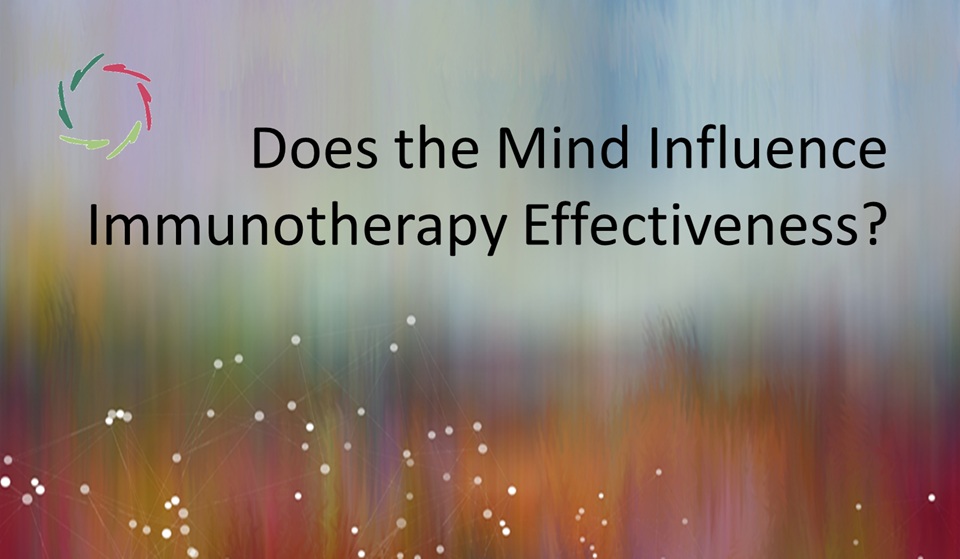Mind on Infections

New research is making the connection between psychological stress and infectious diseases clearer. This blog explores key data on how the mind affects the body’s ability to fight infections.
Scientific evidence now shows that chronic stress, negative emotions, and psychosocial factors can weaken the immune system, increasing susceptibility to infections and influencing disease progression.
I did a (manual, not exhaustive but as objective as possible) literature search in PubMed and found 50 relevant articles. The insights and research referenced in this blog come from these articles. You can see the titles and abstracts in this pdf.
Psychological stress increases susceptibility to infection
The common cold
One of the most well-known studies in this field comes from Cohen et al., who demonstrated a clear link between psychological stress and susceptibility to the common cold. In their study, subjects with higher stress levels were significantly more likely to develop cold symptoms after being exposed to a respiratory virus. The infection rate in stressed individuals ranged from 74% to 90%, depending on the degree of psychological stress, while the incidence of cold symptoms ranged from 27% to 47%, depending on the same. This is an increase of up to 90%.
The dose-response relationship between stress and infection highlights how even moderate levels of psychological distress can impact the immune system’s ability to defend against common pathogens.
Herpes Simplex Virus (HSV)
The connection between stress and viral infections isn’t limited to respiratory illnesses. A review by Longo and Koehn examined 45 studies on psychosocial factors and recurrent genital herpes (HSV). They found that stress and other psychological factors were significant predictors of HSV reactivation. This relationship was particularly strong in individuals who experienced chronic stress, with psychological treatment showing the potential to reduce recurrence rates through psycho-immunological mechanisms.
SARS-CoV-2 and occupational stress
The COVID-19 pandemic provided an opportunity to study the impact of chronic stress on infection rates. A study of healthcare workers during the pandemic found that those with elevated hair cortisol levels – an indicator of chronic stress – were nearly twice as likely to contract SARS-CoV-2 compared to their less-stressed colleagues (OR = 1.84). This effect was particularly pronounced in older workers, suggesting that age and stress interact to elevate risk.
The role of psychosocial stress in disease progression
HIV progression
Research also indicates that stress doesn’t just make people more susceptible to infections; it can accelerate disease progression in those who are already infected. Studies on HIV-positive individuals, such as those by Leserman et al. and Ironson et al., reveal that chronic stress, depression, and anger significantly accelerate the progression to AIDS.
Leserman et al. found that higher cumulative stress and lower social support were associated with faster disease progression, as measured by CD4 T-cell counts and viral load. Ironson et al. took this further by showing that elevated levels of norepinephrine (NE) and cortisol were directly linked to increased viral replication and immune system decline over a four-year period.
Herpes zoster (shingles) and postherpetic neuralgia (PHN)
For individuals suffering from herpes zoster (shingles), stress plays a major role in predicting whether they will develop postherpetic neuralgia (PHN), a painful condition that can last long after the shingles rash has healed. In a prospective study by Katz et al., poor psychosocial functioning, including high stress levels, was a strong predictor of both the presence and severity of PHN.
These findings suggest that managing stress could help reduce not only the risk of infection but also the long-term complications that can arise from certain viral infections.
Psychosocial stress and immune function
Stress and antibody response
Vaccination is a critical tool in preventing infections, but stress can reduce its effectiveness. A meta-analysis by Pedersen et al. revealed that individuals experiencing psychological stress produced fewer antibodies in response to influenza vaccination compared to their less-stressed counterparts. This reduced immune response was consistent across different types of influenza viruses and was observed in both younger and older adults.
Cytomegalovirus (CMV) reactivation
Latent infections, like those caused by cytomegalovirus (CMV), can be reactivated under stress, particularly in immunocompromised individuals. A study by Rector et al. found that stress-related conditions such as anxiety and depression were associated with higher CMV antibody levels, indicating viral reactivation. This adds to the growing body of evidence that stress doesn’t just increase the risk of new infections but can also trigger latent viruses that have remained dormant in the body.
Stress-related inflammation and infection risk
Inflammatory biomarkers
Stress is known to increase levels of inflammatory biomarkers, such as C-reactive protein (CRP) and pro-inflammatory cytokines like TNF-alpha. Elevated CRP levels have been linked to higher risks of infection, and chronic inflammation is a known contributor to poorer health outcomes across a range of diseases. This inflammatory response is one of the mechanisms through which stress weakens the immune system, making the body more susceptible to both bacterial and viral infections.
HIV acquisition
Young women in rural South Africa who experienced high levels of chronic stress were found to have elevated levels of CRP and CMV, both of which were linked to an increased risk of acquiring HIV. Stoner et al. showed that stress-responsive biomarkers were strongly associated with new HIV infections in this population, suggesting that stress management could play a role in reducing the spread of the virus.
The data is clear
Psychological stress plays a significant role in both the susceptibility to and progression of infectious diseases.
From the common cold to HIV and SARS-CoV-2, stress affects the immune system in profound ways. It increases vulnerability to infections, accelerates disease progression, and can also reduce the effectiveness of vaccinations.
Managing stress is not just a matter of mental well-being; it is a crucial component of infection prevention and disease management. Future research should continue to explore these connections, with a focus on developing interventions that address both the psychological and physiological dimensions of health.


